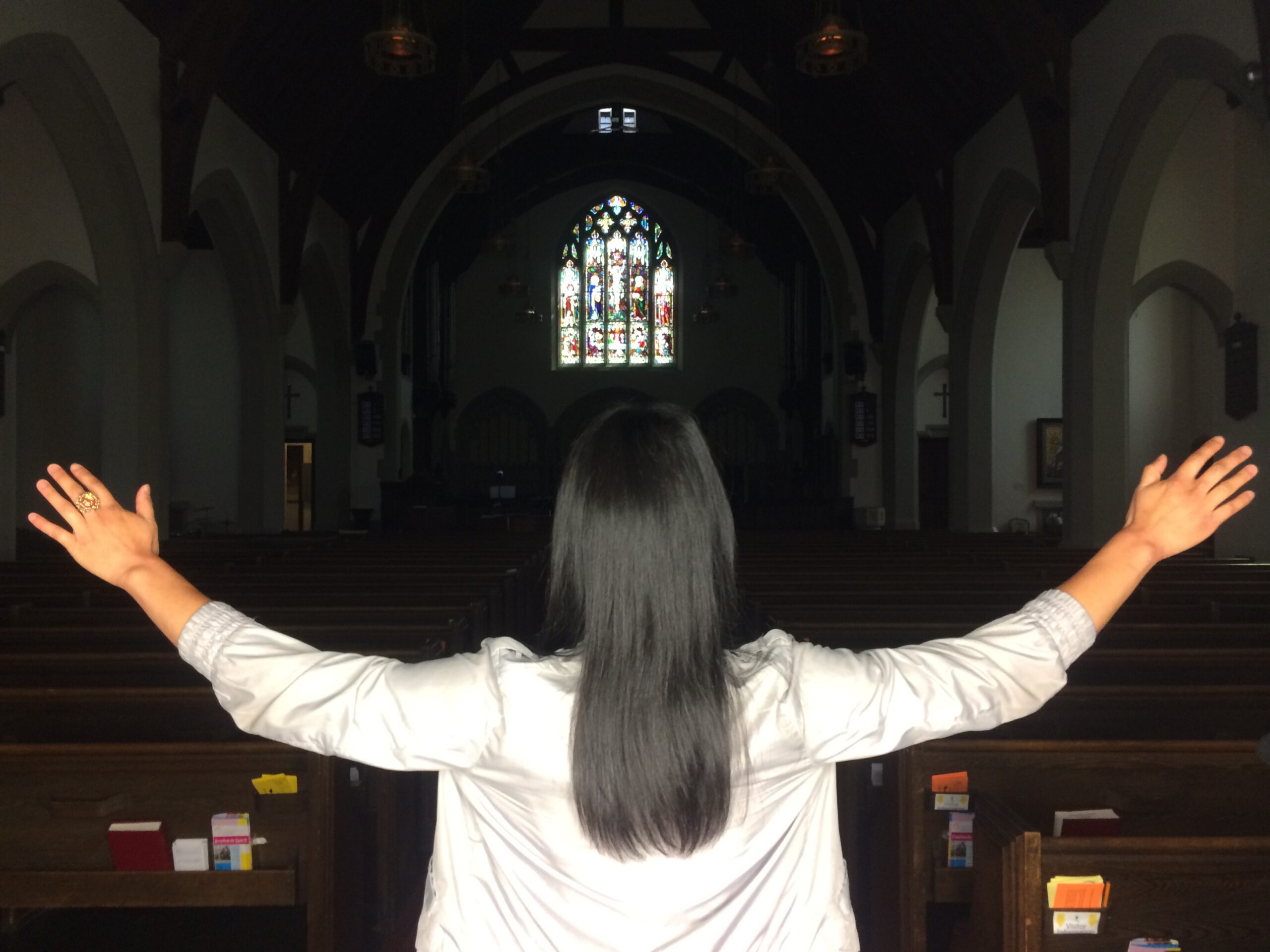She waved her hands in the air, beaming as she danced with her friends on the cobblestone streets. I stood behind this stranger — surrounded by a sea of worshippers and jazz listeners — to hear gospel legend CeCe Winans at Toronto’s jazz festival. Winans’ soulful and commanding presence reverberated through the often-quiet streets of Yorkville, uplifted by her backup singers, horns and drums.
I felt so alive in the crowd. I couldn’t remember the last time I danced so freely to worship music, a common practice in my evangelical upbringing. I was overcome with emotion and reflected on where I had come from.
You may unsubscribe from any of our newsletters at any time.
I had just arrived from the Trans March at Pride, standing in solidarity with my trans and non-binary friends and community. I was moved by their stories of resistance, beauty and wholeness, and seeing our community come together in powerful ways.
In both spaces, I felt God’s presence. These were places of healing and transformation in its many forms. I wondered how many people moved between each event, not wanting to silence one part of themselves for the other and searching for a place to belong.
Many queer, trans and non-binary Christians have to navigate these spaces where we feel like we must choose between our sexual orientation and gender identity, and our faith. This limiting choice was highlighted by the recent Supreme Court of Canada ruling on Trinity Western University’s (TWU) proposed law school.
The Supreme Court ruled that law societies of British Columbia and Ontario have the power to refuse accreditation based on TWU’s community covenant, which calls people to abstain from sexual intimacy outside of heterosexual marriage. The court said this controversial policy would cause significant harm and discourage LGBTQ+ students from attending its proposed law school.
Since the law school was proposed in 2012, the media has consistently framed this discussion as religious freedom versus LGBTQ+ rights. This limited argument completely erased my identity as a queer Christian, as well as that of many other queer, trans and non-binary Christians who stood at this intersection.
In the ruling, it was important to see the Supreme Court recognize and stand up for LGBTQ+ people. The decision recognized the harm of covenants like this, which are still prevalent in many Christian and Catholic organizations.
I signed a sexual conduct policy when I worked in Christian ministry almost a decade ago. Among other conditions, it forbade premarital sex, sexual harassment and “homosexual conduct.” I still live with the negative impacts of that policy and the ensuing shame when I was coming out.
We have so much to contribute, yet many of us aren’t welcome as our whole selves.
I have also benefited greatly from learning in faith-based communities. These spaces informed how I lived my life and were crucial to my spiritual and personal growth. I was surrounded by people who loved and cared for me deeply, but I didn’t feel safe in many of these communities due to my sexuality.
With policies and covenants that discriminate against LGBTQ+ people, however, many Christian communities miss out on our nuanced perspectives.
We have so much to contribute, yet many of us aren’t welcome as our whole selves.
I hope this ruling brings to light those of us who stand in the middle, wanting a place to safely explore our sexual orientation and gender identity, and our faith. We deserve that wholeness, so we can march and worship openly in any community we find ourselves in.
This story originally appeared in the June 2018 issue of The UC Observer.













